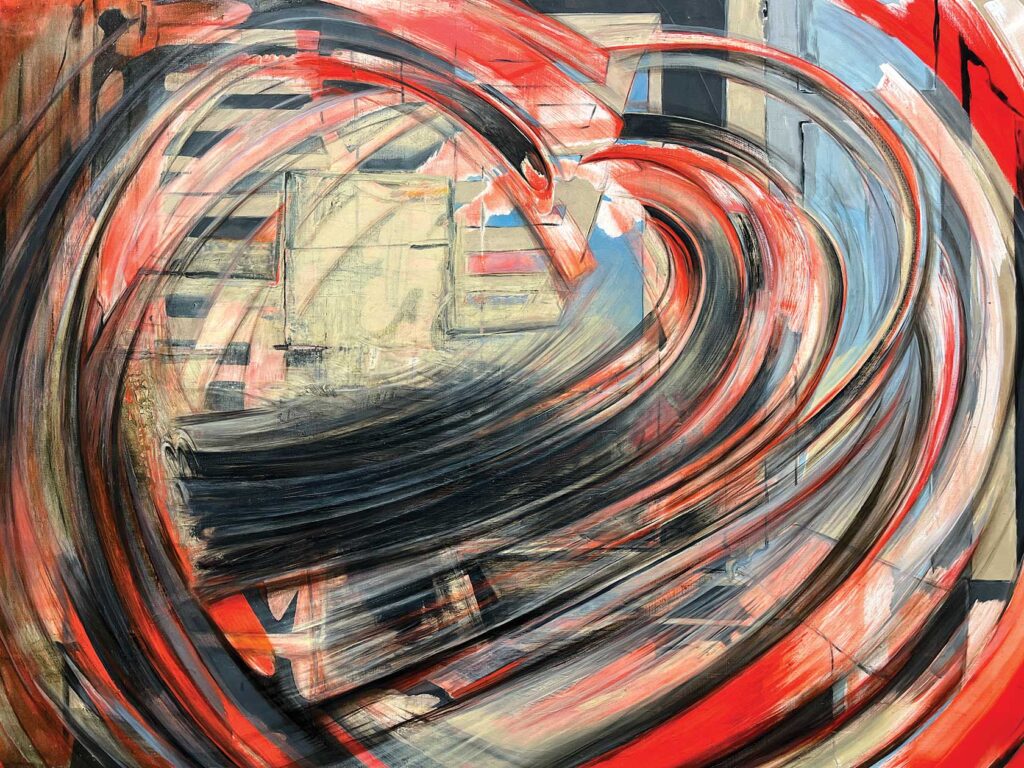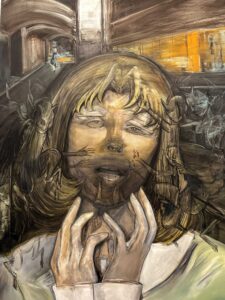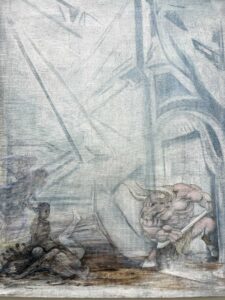
Banner Arts & Culture Sponsored by Cruz Companies

Ellis dubbed her creations “dust-bunny ideas,” paintings that have sat unfinished for years in her studio. Around them, the world has changed. Most of these works span the years 2020 through 2024, a loaded four years full of tumultuous global evolution.
Though the paintings aren’t all uniform in style, some themes are consistent throughout. The figures in the images never feel quite actualized. In “Untitled,” a figure stares directly out at the viewer, holding her face, while demonic figures appear to grab at her, obstructing her image.
In “Mingling,” a cartoon-style character sits facing another more lifelike demon figure. The cartoon composition of the seated figure may imply a surface level sense of self. Perhaps the demon the figure faces is an internal one. Like the “unfinished” paintings, the self is never fully complete. This painting also reflects another theme throughout the exhibition, that of crumbling buildings. The figures appear to be in a dilapidated structure that’s in the process of falling down.
A similar setting appears in “Whimsy,” where a small childlike figure sits next to an overturned female body while an angel-like creature hovers behind her. The child faces a minotaur-type beast emerging from the door of another falling building. In this piece another person faces demons and does so in a crumbling house. This visual representation of falling empires, physical and perhaps cultural collapse, is poignant and timely.
These familiar figures, angels, demons and creatures from legend, demonstrate how mythologies persist over time and can be translated into unexpected contexts.
The exhibition feels like a beginning. Unlike tidily wrapped and interpreted museum shows, the paintings here pick up many threads — identity, mythology, collapse — and follow them, but don’t arrive at any conclusions. That may be a sign of an “unfinished” artwork, or it may be a sign that the art isn’t complete without the viewer’s engagement and interpretation.
“Fear Corroded Ape” runs at the Carpenter Center through April 6. The center, located at 24 Quincy St. in Cambridge, is free and open to the public. On April 3, Ellis will appear in conversation with Rizvana Bradley, associate professor of Film and Media and Affiliated Faculty in the History of Art and the Center for Race and Gender at the University of California, Berkeley. Bradley is author of the 2023 book “Anteaesthetics: Black Aesthesis and the Critique of Form.”









